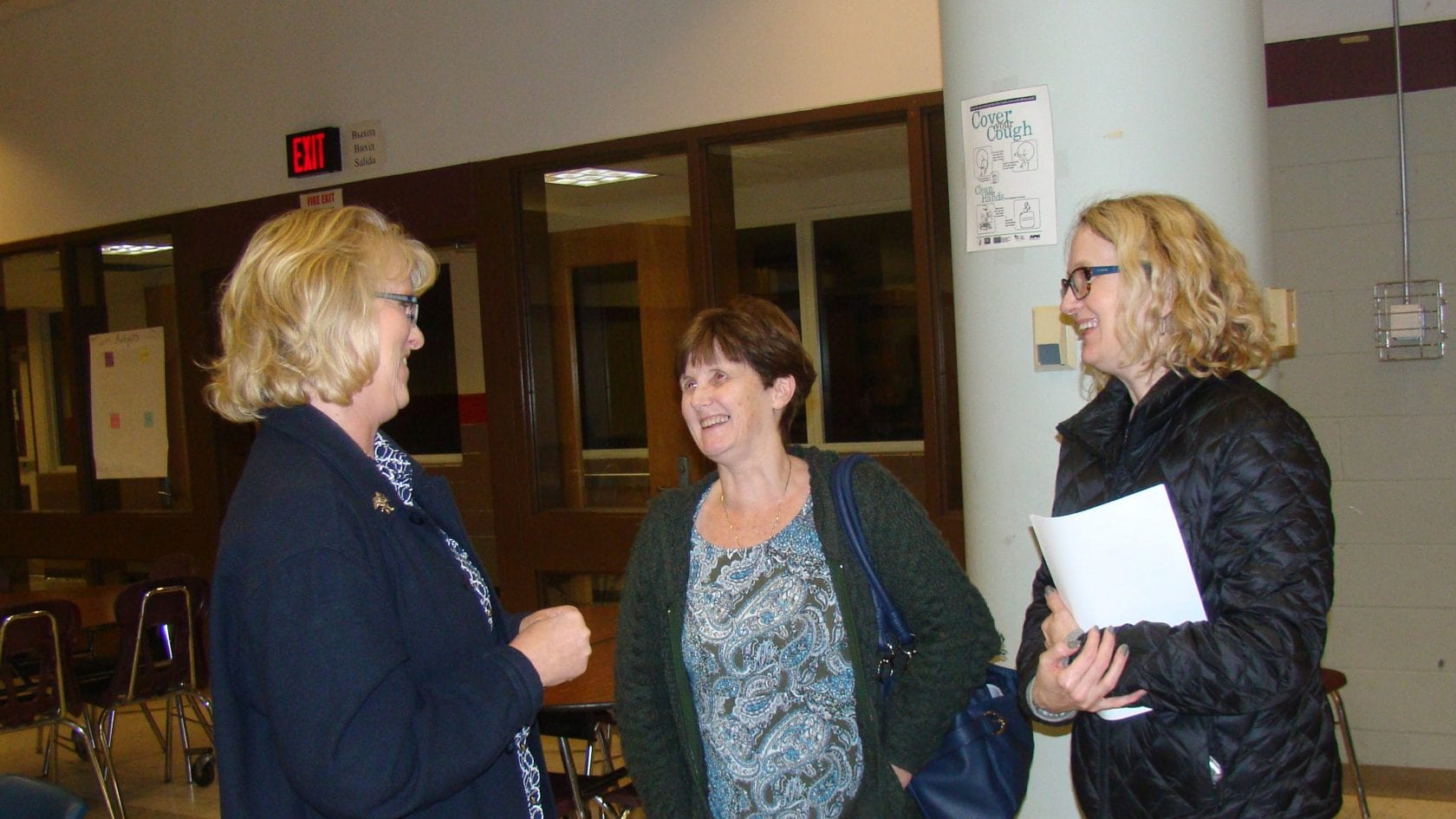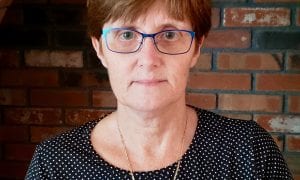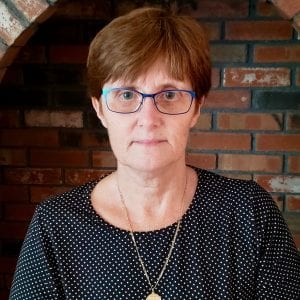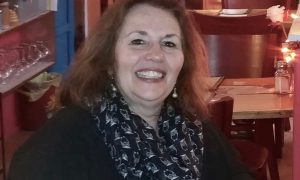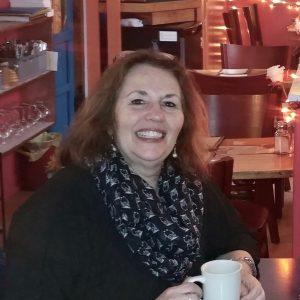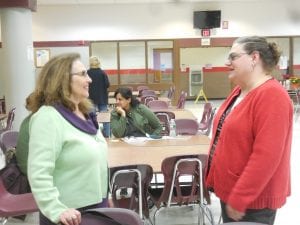
Transition specialist Sherry Elander speaks with parent Melissa Rutkowski at SEPAC meeting. (Photo by Amy Porter)
WESTFIELD – Transition specialist Sherry Elander spoke to parents on Thursday about achieving the dream for their children at the Special Education Parent Advisory Committee (SEPAC) meeting. Elander emphasized that as a family it’s important to start planning early, ideally by age 14, for a productive life when their children turn 18 or 22, whether it be for college opportunities, employment, independent living skills, or shared living.
Elander said transition is a team approach that is focused on the end result based on the student’s strengths, preferences, interests and needs. She had parents write down lists for their child under each category. She encouraged parents to ask the child what they would want to do, because every child should have a vision to work toward. Even if their choice of a job might not be what they ultimately end up doing, having a goal or dream early gives the child incentive to do well in school.
Elander said the schools are not accountable for making these goals happen, and goals can be visited and change every year through ongoing assessments. She said it’s important to look at graduation requirements in each of the high schools, and choose the classes they must take and those based on their strengths and interests. She said passing MCAS is a requirement in both high schools.
“Sometimes we get lost because scheduling is difficult,” Elander said, especially with Individualized Education Plans (IEPs) and meetings.
Elander also talked about formal Transition Assessments, which she said are time consuming and expensive, and might not be needed by everyone if they are working on the goals on a day to day basis as a team.
Elander asked the parents what goals they had for their children. One parent said her son was very musical, and one goal was for him to participate in an open-mic night. Another said attending a four-year college, and living there.
One of the options for students when they turn 18 is the East Mt. Transition program, where they have an opportunity to be with kids their own age, and to work on their independent living goals. Elander said a lot of growth happens when students are in a natural setting with their same-age peers.
Elander said at the East Mt. Transition program, the students do their own maintenance, even washing the bathrooms, which surprises their parents. “Kids are preparing. They don’t want to do that at home for mom,” she said. She encouraged parents to start independent living skills early and often, such as making your child responsible for gathering what they need for school, instead of handing everything to them, and to give them chores and responsibilities. She said sometimes it’s easier to do it yourself, but it’s not in the student’s long-range best interest.
“Unfortunately, in special education, we create a system of enabling which we have to undo,” Elander said. She talked about the “dignity of risk,” saying, “Your kids have the right to fail.”
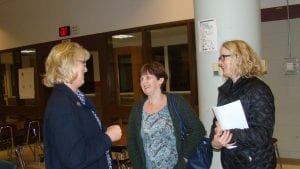
Rachel Bullock speaks with WTA Special Ed Supervisor Deb Ecker and district Special Education Administrator Martha von Mering. (Photo by Amy Porter)
Elander encouraged parents of middle school students to speak with their counselors about their goals, and to connect with the special education supervisors in the high schools, Deb Ecker at Westfield Tech and Kim Dion at WHS, both of whom were at the SEPAC meeting.
“You’ve got to have some pretty serious thought early,” Elander said, adding, “I get to see special ed kids in college.”
Elander encouraged parents to be “consistent, insistent and persistent,” which she said is a mantra in her program. She said she has students studying for their driver’s licenses who may never get them, but studying could help them riding a bicycle on the streets.
She also encouraged parents to familiarize themselves with the age of majority laws, when their children turn 18, and what are the options. She said things are going to change, and there must be flexibility on all parts. She said to involve them in planning, because there is more buy-in when students are developing their own goals.
“Now more than ever, the options for our kids are amazing,” Elander said.

